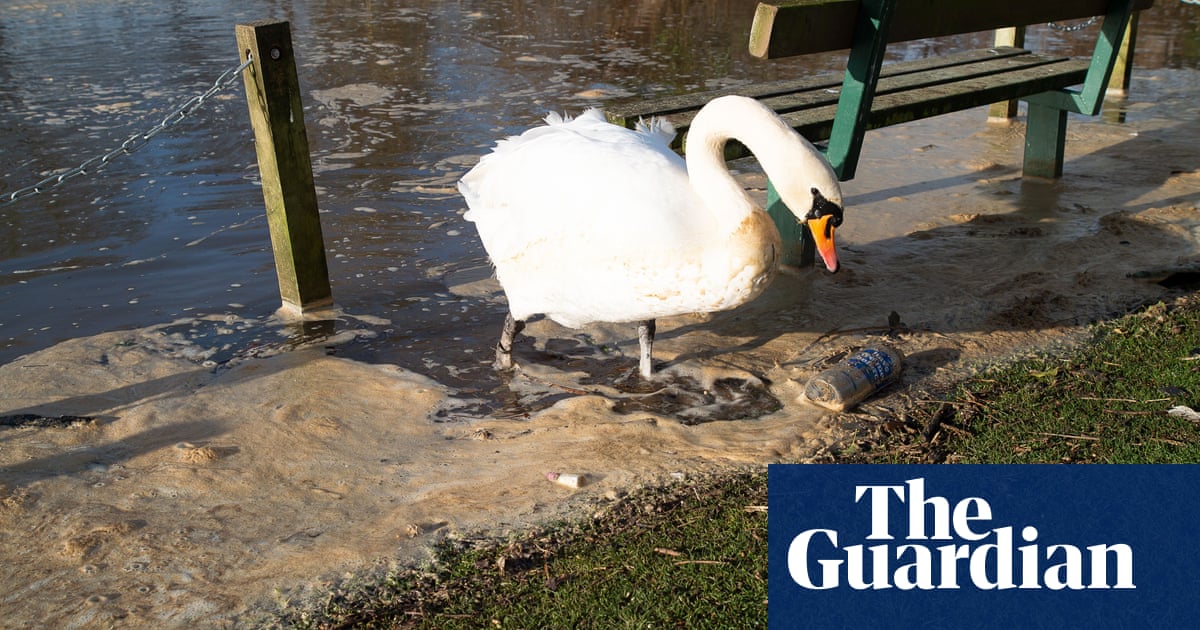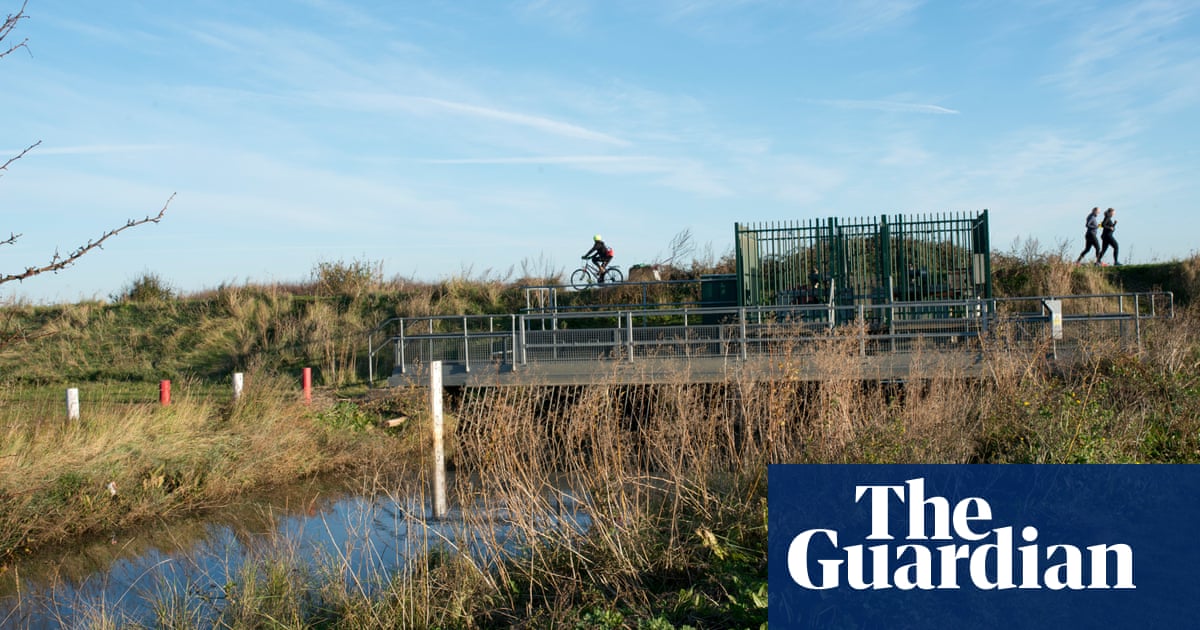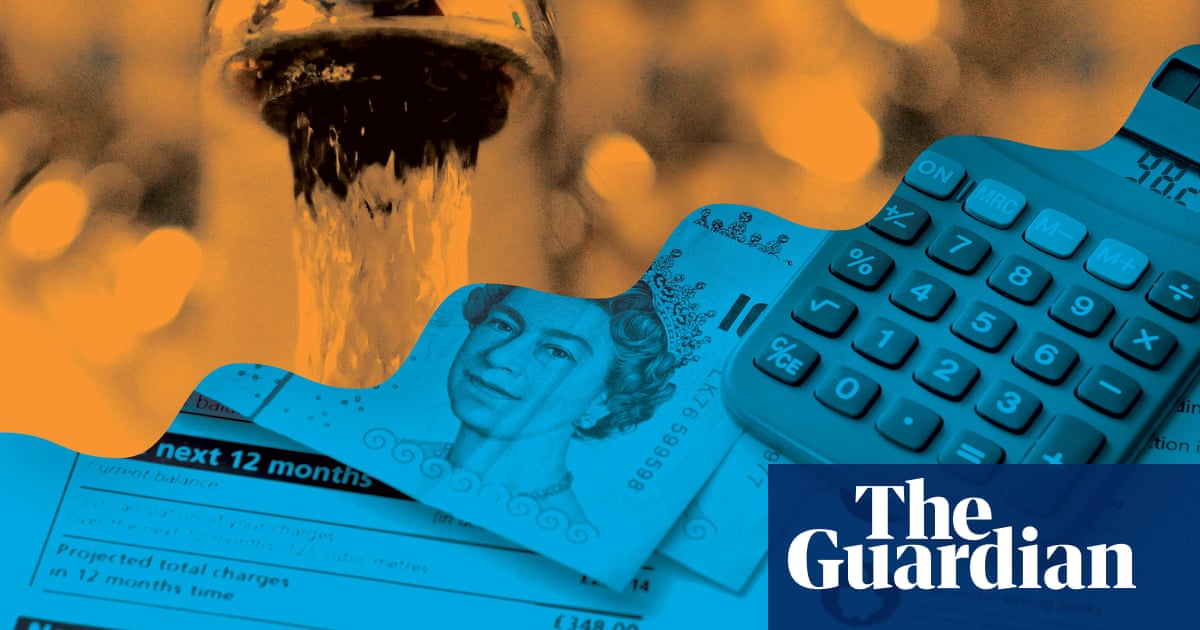
England is failing to invest in the water networks needed to avoid a future of recurrent serious droughts, with current policies amounting to the government “keeping [its] fingers crossed”, the UK’s infrastructure chief has warned.
The current drought was a warning that water systems could not cope with the changing climate, with more hot dry spells interspersed with heavier rainfall, said Sir John Armitt, chair of the National Infrastructure Commission.
“Investment is better than keeping your fingers crossed, and than relying on emergency measures,” he warned.
Ministers could not prevent dry weather, but they could direct investment into infrastructure to cope with it, such as reservoirs and cutting wastage, he said. “The government should set out what degree of risk from drought they would see as reasonable, for people to manage and expect.”
Water bills may have to increase to pay for the investment needed, he warned. “If you want greater resilience to drought, then you have to increase water bills or general taxation [to pay for it],” he told the Guardian in an interview.
Drought was declared in eight of England’s 14 regions on Friday, after a meeting of the National Drought Group, made up of ministers, civil servants, water companies and conservation groups. Five water areas have so far put in place hosepipe bans, though farmers have called for more as ministers were briefed that farmers face the ruin of up to half their crops.
In several areas in the drought-stricken south of England, people have been forced to queue in the street as their water systems failed. In the village of Northend in Oxfordshire, people have been relying on tankers. In and near Guildford in Surrey, handouts of bottled water began at the weekend after a pump failure at Netley Mill treatment works. In Everton in Bedfordshire, an already unreliable supply has been further threatened by drought.
Hydrologists have said these are isolated incidents and that measures such as standpipes – a vivid memory for some from the last most serious drought in 1976 – were highly unlikely to be needed in the current drought, as water companies were more resilient and better prepared than they were nearly half a century ago.
The National Infrastructure Commission has estimated the cost of overhauling the UK’s water networks at £20bn by 2050, considerably less than the £27bn the government has earmarked for new roads this parliament, which campaigners say are not needed.
Armitt said this cost was dwarfed by the cost of drought. “You’d probably have to spend twice that much on bottled water from the back of lorries,” in increasingly frequent droughts, he warned.
New reservoirs should be strongly considered, he said, despite the difficulty of obtaining planning permission, particularly in the south-east of England.
Water metering was also likely to be needed, to encourage people to cut their usage, but “the government is not keen”, he noted, in an interview with the Guardian.
Armitt called for a national debate on how to fund water improvements. The two Tory leadership candidates, Liz Truss and Rishi Sunak, have called for action but shied away from setting out clear proposals on investment.
“You have to balance water investment – do you put it back through people’s bills, or through general taxation?” asked Armitt. “You have to ensure poor people are not being penalised.”
He said the role of water companies should be scrutinised. “There has been criticism of water companies paying dividends to investors. That has to be an issue for governments and regulators to decide,” he said. “You can argue that water companies have invested too little – going forward, the real challenge is for government to say what level of performance the public should be entitled to expect.”
People could have a substantial impact on water usage by changing their behaviour, for instance by not leaving taps running and running washing machines only on full loads. But this would not be enough alone, and the government under a new prime minister would face uncomfortable choices over the investment needed for new reservoirs and infrastructure, Armitt warned.
“There is a cost of living crisis, especially with energy bills, and people don’t want to hear about water bills going up too,” he said. “But one way or another we have to find a way to pay for this new infrastructure.”
Poorer households could be protected if the government stepped in to make the current billing systems fairer, Armitt added.
England has experienced its driest July since 1911, with only about 10% of the average rainfall for the time of year in the south of England. The period since November has been the driest eight-month period in England since 1976.












